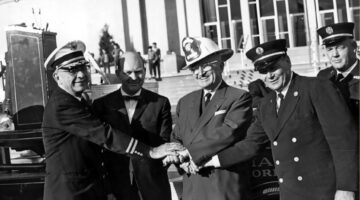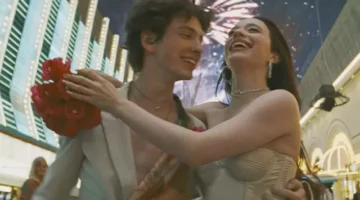Tropic Sprocket / Toni Morrison: Pieces Am I
By Ian Brockway
Director Timothy Greenfield- Sanders’ (Thinking XXX, The Trans List ) new documentary “Toni Morrison: Pieces Am I presents the Nobel Laureate as is: vivacious, curious and forthright, without sentimentality.
This documentary is swift, pulsing and dynamic. It is chock full of literary celebrity. It also crackles with detail accompanied by stirring artwork to illustrate its sobering historical points.
But most importantly, here is Toni Morrison speaking plainly in a chair, her physical body creates a somatic book revealing a quiet smile. Morrison, named Chloe Wofford, was born in Lorain Ohio. Right away, society impelled Morrison to rebel, given the awareness that government forbid African Americans to read until after The Civil War. Her father was a steel worker and her mother a homemaker. As a child during segregation, Morrison recalled a childhood friend telling her that God did not exist. When Morrison asked why, the girl replied that she had been praying, asking Him for blue eyes and she did not receive them.
The moment became the catalyst for the author’s famous book The Bluest Eye. The book arguably remains her most intense and confrontational novel. Through the years, there have been numerous attempts to ban it from school libraries.
During the novel’s creation, Morrison raised two kids, possessed an editorship at Random House and taught at Princeton.
Morrison witnessed the ugliness of racism firsthand. Interviewed by Charlie Rose, she says in part, “racism is a neurosis. The white man has a problem… How does he feel? Take me out of it.” From her perspective, racism is both ridiculous and malevolent. It is Evil outside of logic. She recalls taking segregation signs and mailing them to family. Morrison also says there was racism when she was a student at Howard University, recalling that every sorority stuck together in regard to their complexion. Racism is viral, pernicious, infecting, silly and sick.
The film features the learned and quirky personalities of Walter Mosely, Fran Lebowitz, David Carrasco and poet Sonia Sanchez, just to name a few. Many segments are highlighted by stunning visual art by Mickalene Thomas, Romare Bearden, Jacob Lawrence, Faith Ringgold and Kara Walker, among others. These wondrous kaleidoscopic artworks complement the author’s life and bearing to great effect.
Through each strife, Morrison keeps writing, waking each morning at 4 AM. In 1987, Beloved is published and Oprah Winfrey is hooked. Despite world acclaim, the novel fails to be awarded the Pulitzer Prize. A backlash begins. Forty-eight authors write an open letter in The New York Times and Morrison wins the award in 1988. In 1993, she wins the Nobel Prize in Literature.
There is universal acclaim, yet some say her prize is a fluke. The conservative Stanley Crouch calls Beloved “a maudlin idealogical commercial” in parts.
No matter, Toni Morrison flourishes and continues on.
To her, writing is a numinous and mystical act. As she says at the film’s conclusion (in paraphrase) “I do not know the person who reads my book, but we have this.” Morrison holds up her hand to reach out and touch her unknown reader. A novel is a magnetized mirror uniting the reader and author. And In Toni Morrison: Pieces Am I“, the storied galvanism of the author is in full force.
Write Ian at [email protected]
[livemarket market_name="KONK Life LiveMarket" limit=3 category=“” show_signup=0 show_more=0]








No Comment